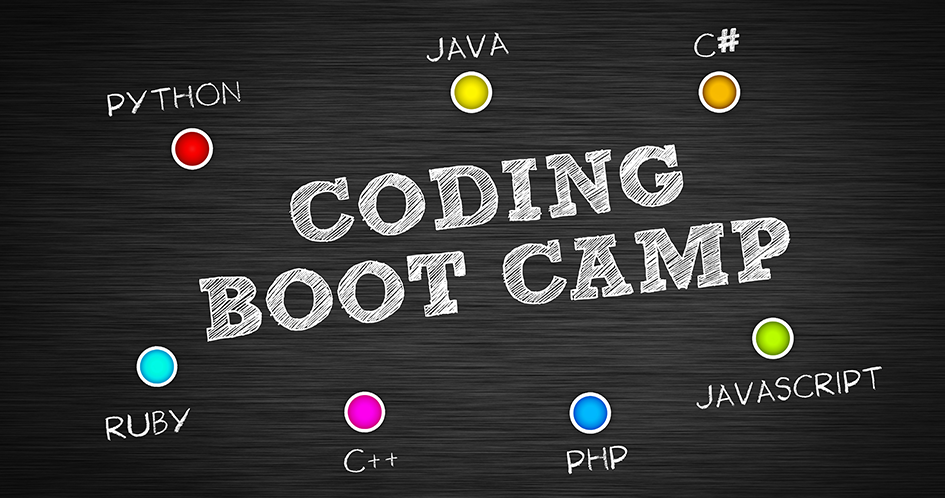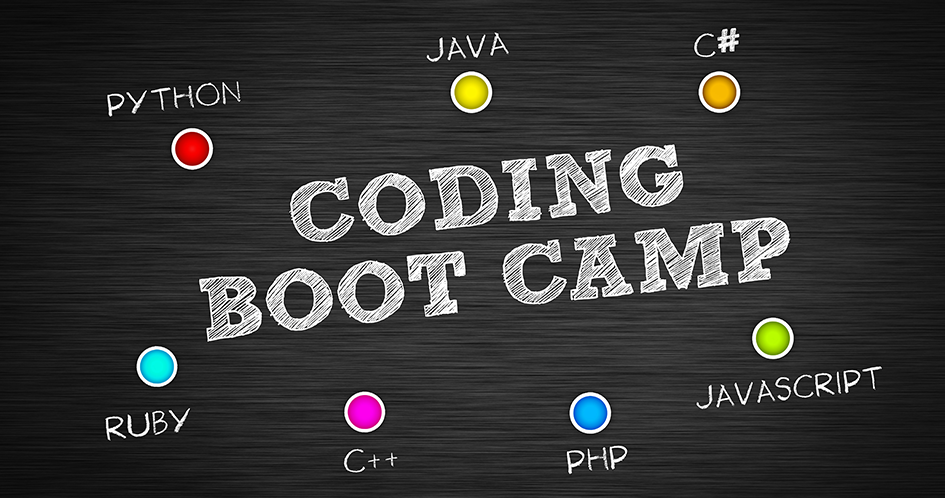Cost and Return on Investment: Are Coding Bootcamps Good

Coding bootcamps represent a significant financial investment, and understanding the potential return is crucial for prospective students. This section examines the costs associated with bootcamps, potential salary increases, financing options, and factors influencing the overall return on investment. Careful consideration of these aspects is essential for making an informed decision.
Are coding bootcamps good – The total cost of a coding bootcamp encompasses tuition fees, living expenses, and the opportunity cost of forgone income during the program. These costs can vary widely depending on the bootcamp’s location, duration, and the intensity of the program. Furthermore, the potential salary increase after graduation is highly dependent on factors such as the specific programming language learned, prior experience, and the individual’s job-seeking skills.
Bootcamp Costs and Average Salaries
The following table provides a general comparison of average bootcamp costs and average starting salaries for several popular programming languages. It’s important to note that these figures are averages and can vary significantly based on location, experience, and individual performance.
| Programming Language | Average Bootcamp Cost (USD) | Average Starting Salary (USD) | Approximate ROI (Years) |
|---|---|---|---|
| Full Stack Web Development | 15,000 – 20,000 | 70,000 – 90,000 | 1-2 |
| Data Science | 18,000 – 25,000 | 80,000 – 110,000 | 1-2 |
| Cybersecurity | 12,000 – 18,000 | 75,000 – 100,000 | 1-1.5 |
| Mobile App Development | 14,000 – 20,000 | 65,000 – 85,000 | 1.5-2 |
Note: These figures are estimates based on industry reports and may not reflect all situations. Actual costs and salaries can vary considerably.
Bootcamp Financing and Debt Accumulation
Many students finance their bootcamp education through loans, which can lead to significant debt. It’s essential to carefully consider the long-term implications of this debt and weigh it against the potential for increased earning power. The following table compares different financing options and their potential long-term impact.
| Financing Option | Interest Rate (Example) | Repayment Period (Example) | Potential Long-Term Impact |
|---|---|---|---|
| Personal Loan | 8-12% | 3-5 years | High potential for debt if salary increase doesn’t meet expectations. |
| Student Loan (Federal) | Variable, generally lower than personal loans | 10-20 years | Lower interest rates but longer repayment period. |
| Income Share Agreements (ISAs) | Percentage of future income for a set period | 3-5 years | Risk is shared, but income potential is directly tied to repayment. |
| Savings | N/A | N/A | No debt, but may require significant upfront savings. |
Note: Interest rates and repayment periods are examples and can vary based on individual circumstances and lender policies.
Factors Influencing Bootcamp ROI, Are coding bootcamps good
Several factors significantly influence the return on investment of a coding bootcamp. Careful consideration of these factors is essential for maximizing the benefits of the program.
- Job Placement Assistance: Bootcamps with strong job placement services and career support significantly improve the likelihood of securing a well-paying job after graduation.
- Prior Experience: Individuals with prior experience in technology or related fields often find it easier to secure higher-paying positions after completing a bootcamp.
- Specific Bootcamp Program: The curriculum, instructors, and reputation of the bootcamp can all influence the quality of education and subsequent job prospects.
- Networking Opportunities: Strong networking opportunities provided by the bootcamp can lead to valuable connections and potential job offers.
- Location: Bootcamps in high-demand tech hubs often offer better job prospects and higher salaries.
Curriculum and Job Placement

Choosing a coding bootcamp involves careful consideration of its curriculum and, critically, its job placement success rate. A strong curriculum equips students with the necessary skills, while effective job placement services significantly increase the likelihood of securing a well-paying role after graduation. This section delves into these crucial aspects, comparing different bootcamps to provide a clearer picture for prospective students.
Curriculum Comparison Across Bootcamps
The curricula of coding bootcamps vary significantly, impacting the type of roles graduates can pursue. The following table compares three prominent bootcamps – Flatiron School, App Academy, and General Assembly – highlighting key differences. Note that these are general comparisons and specific course offerings may change.
| Bootcamp | Programming Languages | Project Types | Career Focus |
|---|---|---|---|
| Flatiron School | Ruby on Rails, JavaScript, Python, iOS Development | Web applications, mobile apps, data science projects | Web development, mobile development, data science |
| App Academy | JavaScript, Ruby on Rails, React, Python | Full-stack web applications, APIs, database integrations | Full-stack web development |
| General Assembly | JavaScript, Python, Java, SQL, UX/UI Design principles | Web applications, data analysis projects, UX/UI designs | Web development, data science, UX/UI design |
Job Placement Outcomes
Successful job placement is a key indicator of a bootcamp’s effectiveness. The examples below illustrate the types of roles graduates from these bootcamps have secured. It is important to remember that individual outcomes vary, and these are just a few examples.
Flatiron School:
- Software Engineer at Google ($120,000/year)
- Front-End Developer at Amazon ($110,000/year)
- Data Scientist at a Fintech Startup ($95,000/year)
App Academy:
- Full-Stack Developer at Facebook ($135,000/year)
- Senior Software Engineer at a Tech Startup ($140,000/year)
- Web Developer at a major E-commerce company ($105,000/year)
General Assembly:
- UX/UI Designer at a Design Agency ($80,000/year)
- Data Analyst at a Marketing Firm ($75,000/year)
- Web Developer at a Non-profit Organization ($65,000/year)
Effectiveness of Job Placement Services
Bootcamps employ various strategies to assist graduates in their job search. The effectiveness of these services can significantly influence job placement success. The following table compares different approaches.
| Job Placement Service | Description | Effectiveness Factors |
|---|---|---|
| Career Counseling | Individualized guidance on resume building, interview skills, and career path selection. | Quality of counselors, personalized approach, frequency of sessions. |
| Networking Events | Opportunities to connect with industry professionals and potential employers. | Number and quality of attendees, networking opportunities provided, follow-up support. |
| Resume Building Workshops | Structured sessions focused on creating compelling resumes and cover letters. | Quality of instruction, practical exercises, individual feedback. |
Student Experience and Reviews

Understanding the student experience is crucial when evaluating a coding bootcamp. Direct feedback from former students offers invaluable insights into the program’s effectiveness, the quality of instruction, and the overall learning environment. This section analyzes anonymized student experiences to provide a balanced perspective on the bootcamp journey.
Analyzing student reviews reveals recurring themes that illuminate the strengths and weaknesses of different bootcamps. These themes help prospective students make informed decisions based on their individual learning styles and career goals.
Student Testimonials: Diverse Perspectives
The following anonymized examples illustrate the range of experiences reported by coding bootcamp graduates. These accounts reflect both positive and negative aspects, offering a realistic picture of the learning process and post-bootcamp outcomes.
“The curriculum at [Bootcamp A] was incredibly challenging but rewarding. The instructors were highly knowledgeable and supportive, always available to answer questions. The career services team helped me land a junior developer role within two months of graduation.” – Anonymous Graduate, Bootcamp A
“While [Bootcamp B] provided a strong foundation in [Specific Programming Language], I felt the pace was too fast. The career services support was minimal, and I struggled to find a job after completing the program. I wish they had offered more personalized mentorship.” – Anonymous Graduate, Bootcamp B
“I chose [Bootcamp C] for its focus on [Specific Technology]. The instructors were excellent, and the hands-on projects were invaluable. The collaborative learning environment was a highlight, and I built strong relationships with my classmates.” – Anonymous Graduate, Bootcamp C
Categorization of Student Reviews
To better understand the recurring themes in student reviews, we’ve categorized them based on common experiences.
This categorization helps prospective students focus on aspects most relevant to their needs and expectations.
- Curriculum Quality: Reviews frequently mention the depth and relevance of the curriculum, the quality of teaching materials, and the effectiveness of the learning methodologies. Examples include praise for project-based learning and criticism of outdated technologies.
- Instructor Effectiveness: Student feedback often highlights the instructor’s knowledge, teaching style, availability for support, and ability to foster a positive learning environment. Examples include comments on responsive instructors and those who struggled to keep up with the pace of the curriculum.
- Career Support: The quality of career services is a major factor in student satisfaction. Reviews often assess the effectiveness of job placement assistance, networking opportunities, resume review services, and interview preparation. Examples include success stories and accounts of inadequate support.
- Overall Learning Environment: This category encompasses the overall atmosphere of the bootcamp, including peer interaction, collaborative projects, and the general feeling of community and support. Examples include positive feedback on collaborative learning and negative comments on a competitive environment.
Summary of Student Satisfaction Ratings
The table below summarizes the overall satisfaction ratings and key aspects of student experiences from various online review platforms (e.g., Course Report, SwitchUp). Note that ratings are averages and individual experiences may vary.
This summary provides a quick overview of student sentiment across different bootcamps.
| Bootcamp Name | Overall Satisfaction | Curriculum Quality | Career Support |
|---|---|---|---|
| Bootcamp A | 4.5/5 | 4.7/5 | 4.2/5 |
| Bootcamp B | 3.8/5 | 3.5/5 | 2.9/5 |
| Bootcamp C | 4.2/5 | 4.4/5 | 3.9/5 |


Tim Redaksi